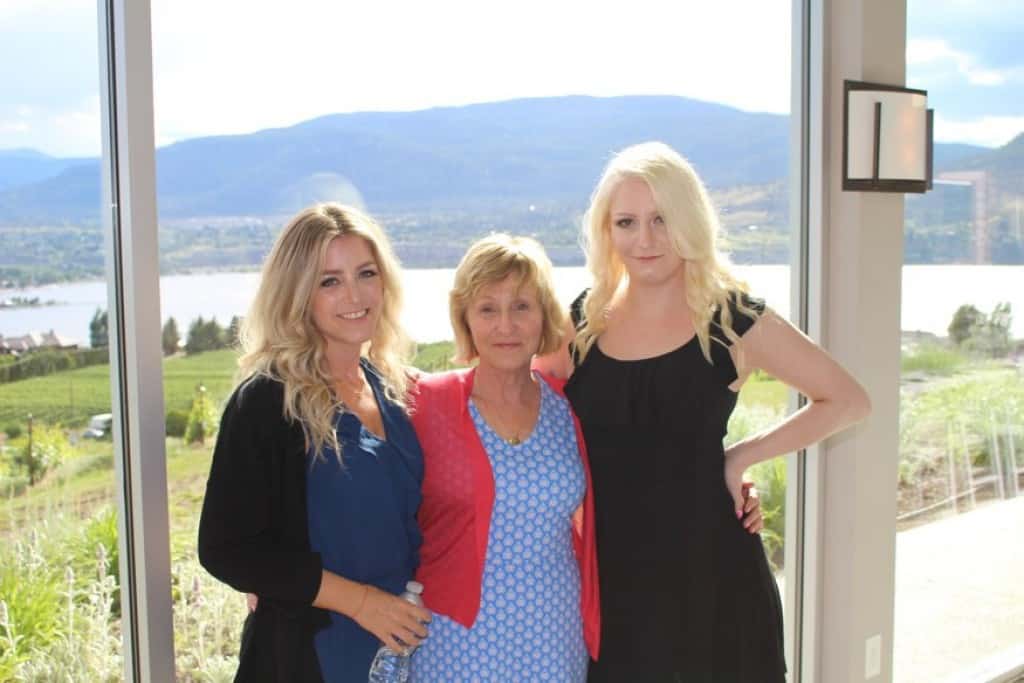At her daughter Jordan’s wedding, Terry McLean wasn’t just the proud mother-of-the-bride, she was the proud mother-of-the-bridesmaid. For Brett to be there, standing up for her big sister, was a testament to her fierce determination.
From the time she was little, Brett McLean wanted to be a nurse. “She was amazing at knowing what other people needed,” says Terry. “But she was never able to use that insight on herself.”
She was an anxious child with intense emotions. But in those days, there were few resources. “Brett was a bright girl who was clearly having a hard time,” says Terry. “Her teachers and counsellors tried, but awareness and education about how to help were sadly lacking.”
Brett’s parents did everything they could to support their daughter with counselling and therapy; Terry even sent to Australia for a workbook on cognitive behavioural techniques to help Brett manage her anxiety. One of Brett’s counsellors recommended medication. “Anti-depressants? For a nine-year-old? Back then, it seemed ridiculous. We said no,” says Terry. Brett continued to struggle.
Terry likened her to a vase with no base. “We would pour the love in the top and it would just flow out the bottom.”
Bad to worse
Brett was 14 when she experienced her first possible overdose. Fearing it was a serious attempt at suicide, her GP admitted her to hospital where she spent 10 days under guard 24/7 waiting for admission to a youth mental health facility. “Can you imagine how horrendous that must have been for her,” asks Terry? Brett finally did get into the facility, but it wasn’t the light at the end of the tunnel the family had hoped for.
Her high school years were a blur of well-meaning counsellors and programs that just didn’t work for her. The one bright spot was Brett’s education. Thanks to a collective effort from her principal, her teachers, and private tutors when she wasn’t well enough to go to school, Brett graduated with everything she needed to pursue her dream of becoming a nurse.
That’s when things went from bad to worse. Head-strong Brett decided she wanted to move from the family’s home in Victoria to Vancouver. “It was a bad idea from the get-go,” says Terry. “She wasn’t in good mental health, but she had saved the money and she was determined. We couldn’t have stopped her.”
Within months, it was clear Brett was struggling.
Terry points the finger at benzodiazepines (often called “benzos”) as the tipping point for Brett.
Benzos, like Xanax and Ativan, are prescribed for legitimate reasons (anxiety in Brett’s case). But their addictive power can be every bit as devastating as opioids.
Even if you want to quit, it’s extremely difficult. Withdrawal typically means tapering off, which can take years and can lead to psychosis and seizures. “Benzos fly under the radar, so people don’t realize how harmful they are,” Terry says. “They turned Brett into a shell of a person.”
Which brings us to the month before Jordan’s wedding. Brett’s condition was deteriorating. As Terry puts it, “She was completely out of it. I told her, ‘Brett, if you want to be at the wedding, you have to find a way to get it together!’” There was nothing Brett wanted more: so she summoned that determination of hers, and with the support of her doctor, she went on a rapid benzo taper (in itself a brutal experience).
“She did it. Look at her in the picture! She looks strong and determined. We were really proud of her.”
Letting in the light
Sixteen months after the wedding, Brett Allison McLean died of an opioid overdose while on the waiting list for an inpatient treatment program. She was 23.
Brett’s obituary did not shy away from the truth of her death. “We decided as a family that we would say it out loud,” says Terry. “We need to end the stigma. Everyone knows someone who has been affected by this crisis. And we need to recognize that substance use does not discriminate: Brett could be your child.”
To make their point even stronger, the McLean’s asked for donations to the Rapid Access Addictions Clinic (RAAC) at St. Paul’s. Although Brett wasn’t able to take advantage of the harm reduction supports available through the RAAC, Terry is comforted knowing that donations in Brett’s memory are helping to change that for others.
Substance use is never just about the drugs. So the goal at the RAAC is to help stabilize clients in the short term with a bigger-picture goal of transitioning them into community-based programs for treatment, housing, and employment. In the meantime, the goal is harm reduction. In 2019, St. Paul’s became the first in Canada to offer suboxone, a safer, evidence-based substitute for opioids.
Do things like the RAAC and suboxone work even if the person keeps using? “They absolutely do,” says Terry. “There is no recovery – there’s no hope of recovery – if you’re dead.”
Read Brett’s memorial page here. Support the RAAC and all of the harm reduction services at St. Paul’s through Brett’s page or at this link. If you’d like to set up a memorial or tribute page in honour of a loved one, we can help.
